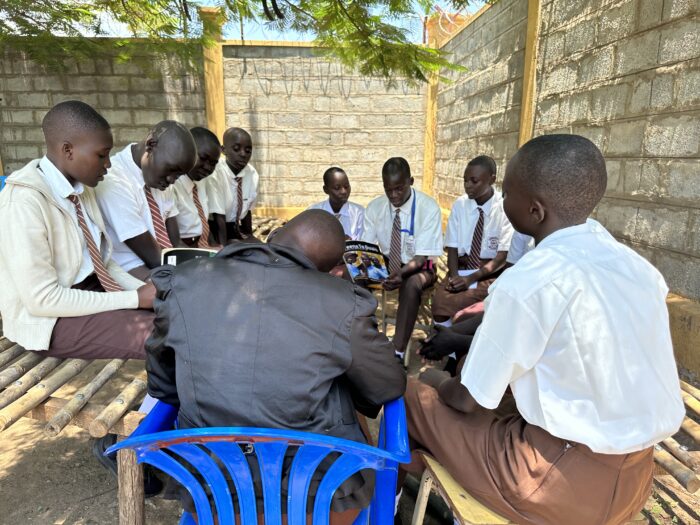Literacy: Building the foundation for sustainable and peaceful societies!
September 8, 2023 1:05 pmJoin us today as we celebrate International Literacy Day under the global theme, ‘Promoting literacy for a world in transition: Building the foundation for sustainable and peaceful societies’.
South Sudan has one of the lowest literacy rates in the world (South Sudan Literacy Rate 2008-2022 | MacroTrends). The country faces many challenges to improve literacy, including a shortage of teaching and learning materials. Textbooks, while provided free of charge to schools, are in short supply in South Sudan, and books available in bookshops, those we read for pleasure, are often unaffordable. Community libraries do not exist, and school libraries exist only in few schools and universities.
To help boost access to reading materials, while also create an opportunity to discuss challenges adolescents face, GESS has established book clubs in over 200 schools across South Sudan. These book clubs are part of GESS’ mentoring activities and give children an opportunity to improve their knowledge about difficult topics, for example pregnancy or bullying, and they improve reading skills too. “I am a member of the book club in school, apart from reading the articles in the magazine for the knowledge I get, I also enjoy reading to learn new words from the [magazine], and I improve my vocabulary,” Keji, Senior 3 learner, Juba.

Keji and members of her book club at Juba Day Secondary School
GESS published the first issue of the Teens ta Guwa magazine in 2022. Over 10,000 copies of the magazine have been printed and distributed to learners in the mentoring and book clubs at no cost to the participants. ‘Teens ta Guwa,’ loosely translates to ‘Power Teens.’
Learners get a copy of the Teens ta Guwa magazine, read articles from it, and those who are part of the Book Club further discuss the content of the articles and compare it with their own experiences. Feedback from learners suggests that they find the content relevant and supportive to their personal growth and their education: “We read the magazine in groups as members of the club, then we discuss the stories and see how they relate to us too. In the past I used to feel shy to talk about menstruation, but after taking part in the discussions, now I don’t consider it a girls’ problem. I can even go to the market to buy pads for my sister,” Nicholas, Senior 4 Learner.
“As a Mentoring ssistant who oversees the book and mentoring clubs, I can see that the school children are learning a lot. Those who were shy at the beginning of the sessions are better now, they interact very well without fear. They even read better, “ Fidhensha, Mentoring Assistant, GESS.

“For me, I can say I have developed confidence and my reading and listening skills have improved. My most interesting part of the [magazine] is the poem on disability which tells us to know that people with disabilities are not any less than us, they are also human beings. Now when we are in the group, we are all equal,” Keji added.
Literacy empowers and liberates people. Beyond its importance as part of the right to education, literacy improves lives by expanding capabilities which in turn reduces poverty, increases participation in the labour market and has positive effects on health and sustainable development.
To ensure that the magazine reaches those beyond the mentoring and book clubs, GESS has made Teens ta Guwa available online. You can read the magazine, here:https://online.fliphtml5.com/wbhmx/sqev/#p=1
Categorised in: Girls' Education, Human Interest Story, Quality Education
Comments are closed here.